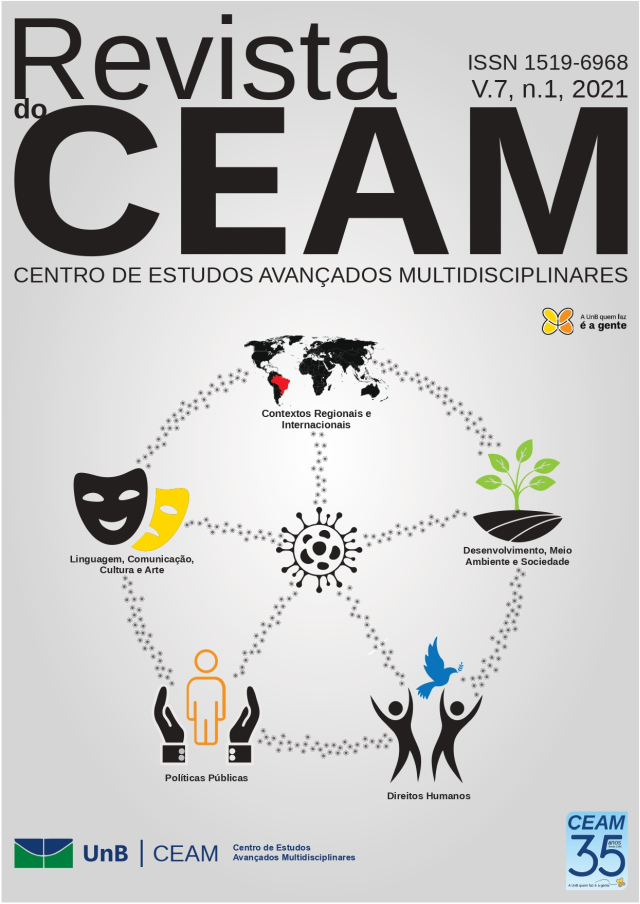Exploiting icebergs
Analysis of the legality of the practice of exploiting icebergs from Antarctica based on the Antarctic Treaty and the Paris Agreement.
DOI:
https://doi.org/10.5281/zenodo.5907678Keywords:
Feasibility, Exploitation, Iceberg, LawAbstract
This article has as main objective to present the current legal feasibility of the practice of exploiting Antarctic icebergs in accordance with the current international laws, these laws being the Paris Agreement and the Antarctic Treaty System. Throughout this article, the history of the practice of towing and exploiting icebergs will be demonstrated, as well as how the practice is currently applied and whether it could be legally applied specifically in Antarctica as the UAE Iceberg Project and the Project Cape Town project suggest. The legal feasibility of the practice of exploiting Antarctic icebergs will be demonstrated through an analysis of the laws that protect the Antarctic environment and that directly or indirectly influence the practice already mentioned. It is possible to emphasize that this type of agreements can affect not only the subscribers but also their respective international allies.
Downloads
References
ALSHEHI, Abdulla. Filling the empty quarter: declaring a green jihad on the desert, p.11, 2015.
BEHRMAN, Daniel.; ISAACS, John D. John Isaacs and his oceans. American Geophysical Union, p.49-52, 1992.
BIZNEWS, Icebergs to Cape Town is gaining traction ”“ Nick Sloane. Disponível em: https://www.biznews.com/good-hope- project/2019/07/25/iceberg-cape-town-nick- sloane. Acesso em: 25 dez. 2020.
BRASIL, Decreto-Lei n.o 44490 Convenção sobre o alto mar, 1.a Conferência de Direito do Mar, Genebra, 1958. Disponível em: http://www.aquaseg.ufsc.br/files/2011/07/ Conven_Alto_mar_1958.pdf:. Acesso em: 25 dez. 2020.
BRASIL. Tratado da antártida e protocolo de madri. Disponível em: https://www.marinha.mil.br/secirm/sites/www
.marinha.mil.br.secirm/files/tratado- protocolo-madri.pdf. Acesso em: 25 dez. 2020.
FONSECA, J. J. S. D; Apostila da metodologia da pesquisa científica. 1. ed: Ceará: Universidade Estadual do Ceará, 2002. p. 31-32.
LUNDQUIST, Thomas R. The Iceberg Cometh: International Law Relating to Antarctic Iceberg Exploitation. Natural Resources Journal, p. 11-14, 1977. Disponível em: https://digitalrepository.unm.edu/cgi/viewcont ent.cgi?referer=https://www.google.com.br/& httpsredir=1&article=3091&context=nrj.
Acesso em: 28 dez. 2020.
MINISTÉRIO DO MEIO AMBIENTE,
Acordo de Paris. Disponível em: https://www.mma.gov.br/clima/convencao- das-nacoes-unidas/acordo-de-paris. Acesso em: 15 dez. 2020.
MINISTÉRIO DO MEIO AMBIENTE,
Tratado da Antártida. Disponível em: https://www.mma.gov.br/acessibilidade/it em/878-tratado-da-antartida. Acesso em: 15 dez. 2020.
NETO, Antonio C.F.; LIMA, Arthur B.F. Reciprocidade no Direito Internacional como princípio basilar de cooperação entre os povos. Periódico online Jus Navigandi.
Disponível em: https://jus.com.br/artigos/53517/reciprocidade- no-direito-internacional-como-principio- basilar-de-cooperacao-entre-os-povos. Acesso em: 15 dez. 2020.
ORGANIZAÇÃO DAS NAÇÕES UNIDAS,
Acordo de Paris. Disponível em: https://nacoesunidas.org/wp- content/uploads/2016/04/Acordo-de- Paris.pdf. Acesso em: 17 dez. 2020.
ORGANIZAÇÃO DAS NAÇÕES UNIDAS,
ONU alerta contra impactos ambientais da dessalinização para fornecimento de água doce. Disponível em: https://nacoesunidas.org/onu-alerta-contra- impactos-ambientais-da-dessalinizacao-para- fornecimento-de-agua-doce/. Acesso em: 17 dez. 2020.
PONTE, Lowell. Alien Ice: An Evaluation of some subsidiary effects and concomitant problems in iceberg utilization. Iceberg Utilization: Proceedings of the First International Conference and Workshops on Iceberg Utilization for Fresh Water Production, Weather Modification and Other Applications, Iowa State University, Ames, Iowa, USA, p. 11, 1977.
PROGRAMA DE DESENVOLVIMENTO
DAS NAÇÕES UNIDAS, Acordo de Paris, Disponível em: https://www.undp.org/content/dam/brazil/ docs/ODS/undp-br-ods- ParisAgreement.pdf. Acesso em: 17 dez. 2020.
ROSENBERG, Jerry. Aspects of Transporting icebergs to U.S. Iceberg Utilization: Proceedings of the First International Conference and Workshops on Iceberg Utilization for Fresh Water Production, Weather Modification and Other Applications, Iowa State University, Ames, Iowa, USA, p. 617, 1977
SVALBARDI, The water. Disponível em: https://svalbardi.com/pages/the-water. Acesso em: 20 dez. 2020.
U.S. COAST GUARD NAVIGATION CENTER. What is the life cycle of an iceberg. Disponível em: https://navcen.uscg.gov/?pagename=iipwh atisthelifecycleofaniceberg. Acesso em: 16 dez. 2020.
WEEKS W.F; CAMPBELL W.J. ICEBERGS AS A FRESH-WATER SOURCE: AN
APPRAISAL. 1973. Disponível em: https://www.igsoc.org/journal/12/65/igs_journa l_vol12_issue065_pg207-233.pdf. Acesso em: 18 dez. 2020.
Downloads
Published
How to Cite
Issue
Section
License
Copyright (c) 2022 Yago Magalhães Fontes

This work is licensed under a Creative Commons Attribution 4.0 International License.
Autores mantém os direitos autorais e concedem à Revista do CEAM o direito de primeira publicação, com o trabalho simultaneamente licenciado sob uma Licença Creative Commons - Atribuição 4.0 Internacional, permitindo o compartilhamento do trabalho com reconhecimento da autoria do trabalho e publicação inicial nesta revista.









